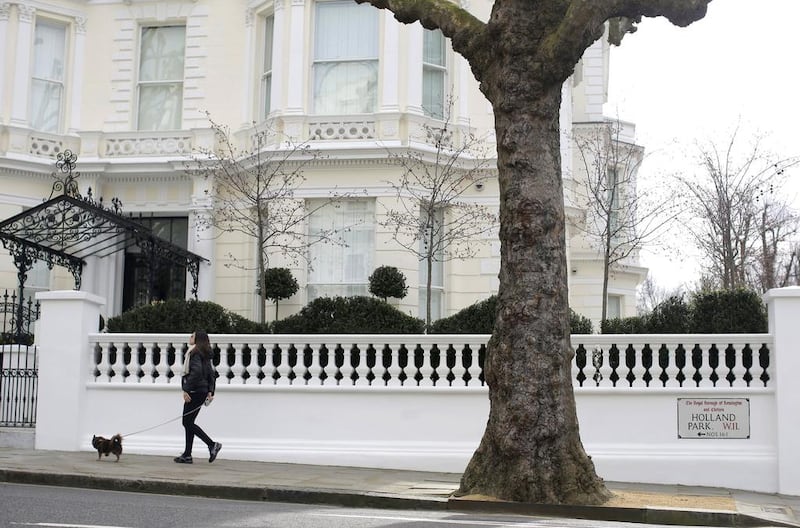In 1986, investment guru Warren Buffet shared the secret of his success in his annual letter to shareholders of Berkshire Hathaway, his sprawling investment conglomerate. “We simply attempt to be fearful when others are greedy and to be greedy only when others are fearful,” he wrote.
Recently, the more sophisticated global investors in London’s property market seem to be heeding his advice. Even as in-fighting threatens to topple the current Conservative government and economists warn of a dire impact from the UK’s vote to leave the European Union last June, London’s commercial property market is on a tear.
Investment sales in the city’s central business district are up nearly a fifth in the first half of the year, compared with the same period last year, to more than US$11 billion, according to Cushman & Wakefield. The shift stands in stark contrast to waning appetite in New York, where the total value of all commercial property sales for 2017 are forecast to match 2008, the year that Lehman Brothers went bust and the entire US financial system teetered on the edge of collapse.
Bullish sophisticated investors may not be the only ones betting on gains in central London property. Central London home sales were up more than a fifth in June and July compared with the same period last year, according to Knight Frank. New buyer registrations at the agency are climbing, too – up 8 per cent between January and August compared to a year before.
A decent number of those new registrations are from the Middle East. London has long been a favoured property investment location for investors from the Gulf. A 2016 report by YouGov found that only Dubai was a more popular location for the region’s wealthy.
In addition, Asian investors are flocking to London in increasing numbers. High-end developers report increased interest in London’s very priciest properties in flagship spots like Mayfair and Knightsbridge. Juwai.com, the Chinese international property portal, reported a growth in enquiries for UK property of 60 per cent in the year to April 2017.
In both cases, investors will have noticed the benefits that Brexit has handed foreign buyers. The pound has lost more than 10 per cent of its value against dollar (to which the UAE Dirham is pegged) since the eve of last June’s referendum.
____________
Read more:
[ London falling? Tough times for luxury property in the capital ]
[ London's mega expensive homes push more buyers into mortgages ]
____________
Across prime central London, meanwhile, agents report the vote has been a wake-up call for owners of prime properties. Few of these sellers typically have to sell; many kept homes at unrealistic prices for months or years prior to the Brexit vote. Now they are re-adjusting their sights, helping to drive the increasing prime sales numbers in June and July.
Falls in Dubai’s property prices, meanwhile, could yet increase the appeal of the UK capital and push London into the top spot for Gulf property buyers. A combination of new mortgage rules, years of dollar appreciation and the tumbling oil prices has seen Dubai home prices fall 13 per cent since their peak in mid-2014, according to government data. At the top end the story is likely to be worse.
The increase in Asian demand in London, meanwhile, represents fears of over-heating markets at home. Average Beijing home prices fell in June, the first monthly fall since February 2015; prices in Shanghai also fell. A June report from Deutsche Bank warned that Hong Kong home prices could fall by nearly half over the next decade.
What is happening in the home market of key foreign investor groups matters for London’s prime market almost as much as what happens in London. Moody’s, a rating agency, estimates that nearly half of London sales of more than £1 million (Dh485,000) are to foreign nationals. Central London agents estimate that the proportion in the most desirable spots – Mayfair, Belgravia, Kensington and the rest – is closer to 70 per cent. More than three quarters of these buyers, according to a recent report come from Asia, the Middle East and Latin America.
This group worries little about Brexit. London has been a favoured investment location for years: few of these buyers ever spent much time scratching their heads over what closer European integration would bring the UK economy. They chose – and choose – London for its safe-haven credentials: political and economic stability, the secure legal system and an easy language in which to transact. Neither these benefits, nor the appeals of London living – excellent private schools and universities and a world-leading cultural offering – are likely to be diminished by the UK’s EU exit.
Nonetheless, these investors are now becoming more selective. Local price data hints at the growing fragmentation of central London’s property market as uniform price gains give way to more varied, local price moves, creating pockets of opportunity for the discerning buyer. Investors will need a more granular, thorough and professional approach to identify them. Broadly speaking, however – and despite the UK’s fractious government and encroaching exit from the EU – London’s prime central market remains a solid long-term bet.
Eirini Nousia is the managing director of Golden Venn, a London-based property consultancy






